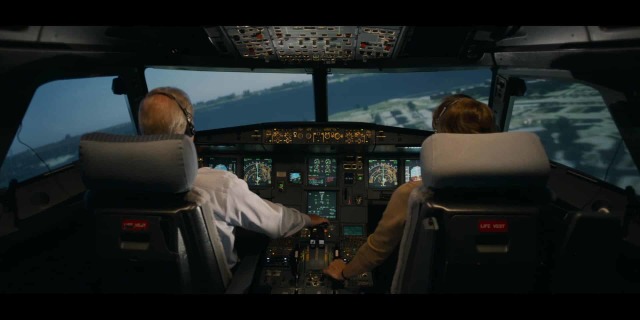Civil aviation is critically dependent on satellite navigation systems. While man-made interference to them was rare and was included in advance in the notices to the flight crew, there were no serious problems. But in recent years, "jammers" have become common equipment, which leads to unpredictable difficulties for air traffic. The European Space Agency has allocated funds for the development of a special satellite system that will protect aircraft from loss of satellite navigation signal.
Satellite navigation systems (GNSS) are needed by civil aviation in the first place, not at all for building a route. The aircraft must know where it is in order to broadcast this information to other aircraft and air traffic Control (ATC) stations. This is how the ADS-B technology, which is the basis of all modern air navigation, works. To increase the accuracy and expand the coverage of transponders on airplanes, space relay systems are used, for example, Aireon.
In conditions when the GPS signal becomes compromised for some reason - strong interference has occurred or it is being replaced — the transponder switches to operation mode based on the inertial navigation system (INS) of the aircraft. The aircraft now determines the coordinates with an accuracy that is unpredictable for ATC. And any, even at first glance, insignificant decrease in safety in aviation is a reason for reinsurance. And if GNSS signals are "jammed" in an area with heavy air traffic, especially near airports, at least part of the boards have to be redirected.
Simply put, dispatching services are forced to take a larger margin for safe distances and the required time for takeoff or landing for aircraft in their control zone. This reduces the overall capacity of an airport or an entire region — and you always need to take into account potential emergencies. Departures are delayed, arrivals are also delayed, or they go to another city altogether. People are late, companies lose money, the environment gets an additional portion of pollution. Everyone is unhappy.
The European Union has been thinking for a long time about what can be done with this, and once again the topic made the front pages of the media after problems with the GPS signal over the Baltic in the spring and summer of this year. But military "jammers" are not the only obstacle to civil aviation, less powerful devices are installed, for example, on private yachts to avoid shooting celebrities from commercial drones. Some time ago, the European Space Agency (ESA) announced a competition to find a way to improve the reliability of aircraft navigation.
According to SpaceNews, it was won by a group of organizations led by the American company Spire Global. The team will receive 16 million euros ($18 million) for the further development of the proposed solution and the creation of a technology demonstrator. Curiously, most of the funds will come from the German Space Agency (DLR). Therefore, Spire Global will open a subsidiary in Munich to work on the project.
The method proposed by the finalists of the competition is simple, and therefore has every chance of success. The most important thing is that no changes will have to be made to the existing equipment on airplanes — this immediately eliminates a potential flurry of problems related to bureaucracy, security and finances. The solution being developed by Spire Global includes a low-orbit satellite constellation, whose devices will receive ADS-B transponder signals. By measuring the difference between the transmission of a signal from one aircraft to several different satellites, the system will refine the coordinates of the board.
These refined coordinates can then be transmitted over the same channels used by the ADS-B responders. As a result, all air traffic will have another independent navigation system, an additional tool for improving reliability.
And a situation where two frequency bands are completely blocked at once — both GPS and ADS-B — is unlikely and looks like a hypothetical situation in which civil aviation definitely has nothing to do. The promising system was named Eurialo, Spire Global has three years to manufacture a technology demonstrator.

